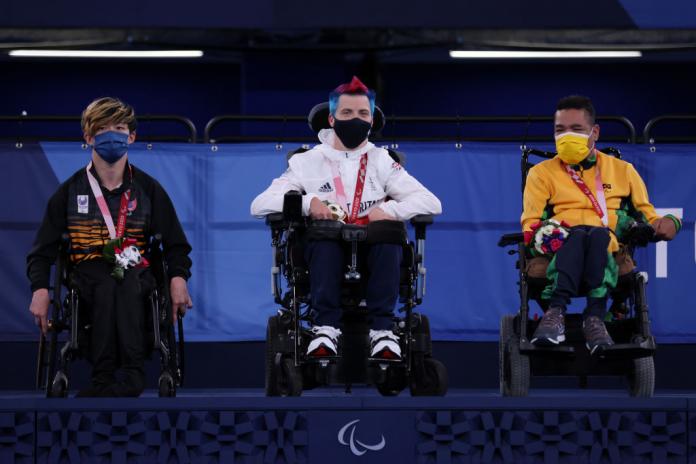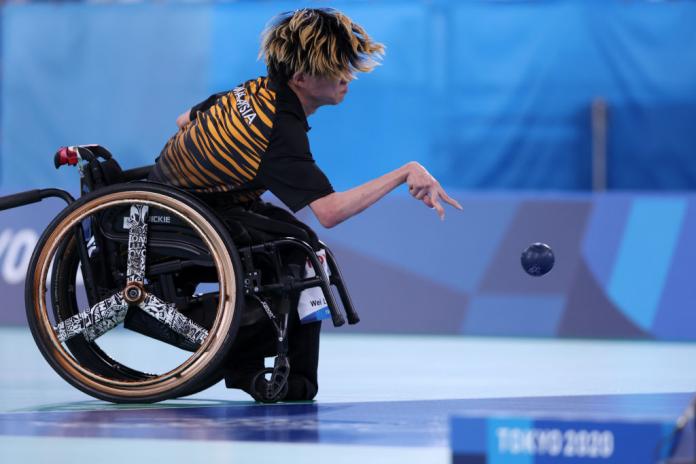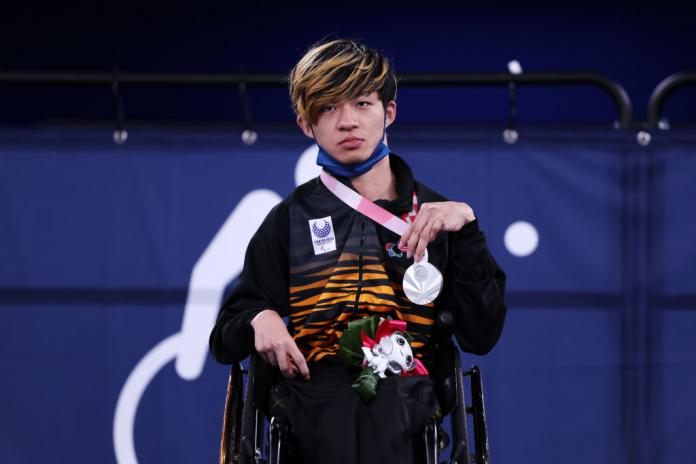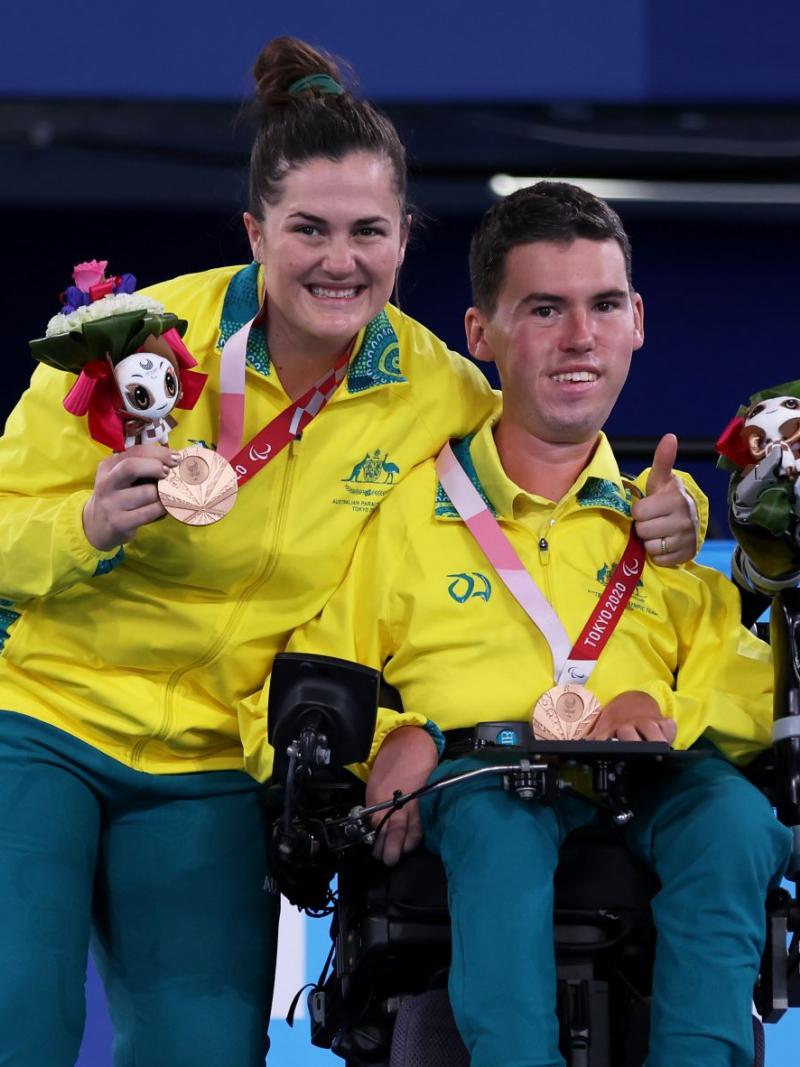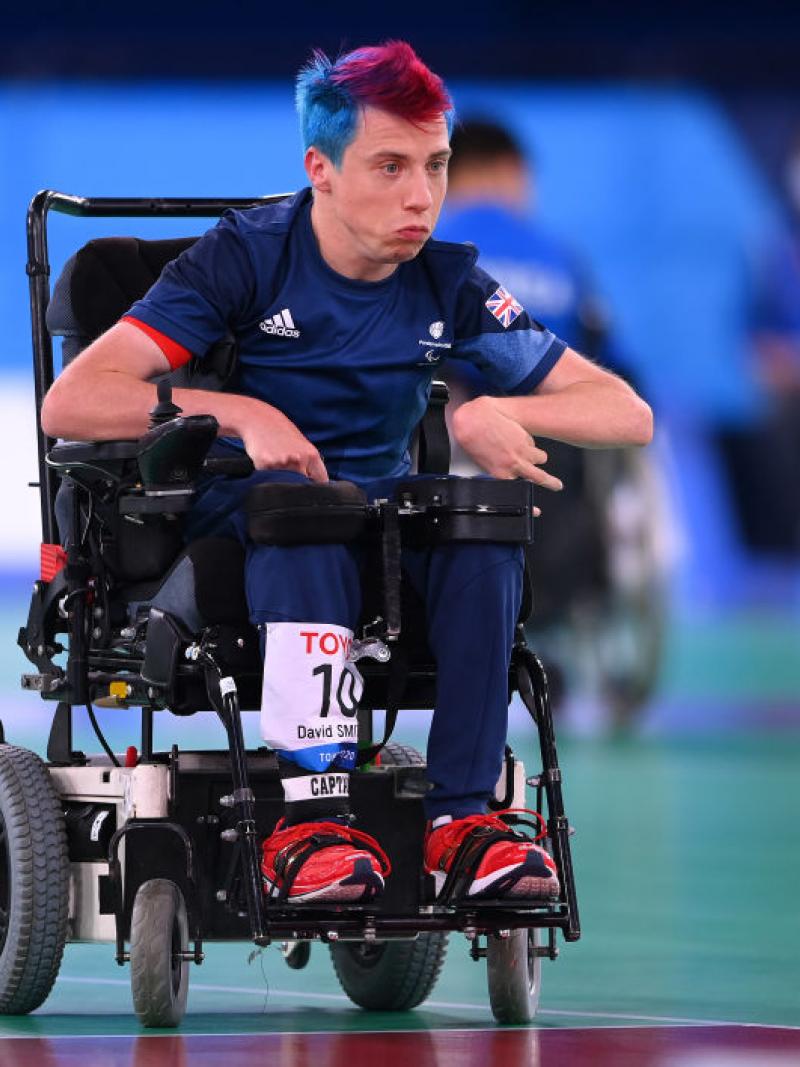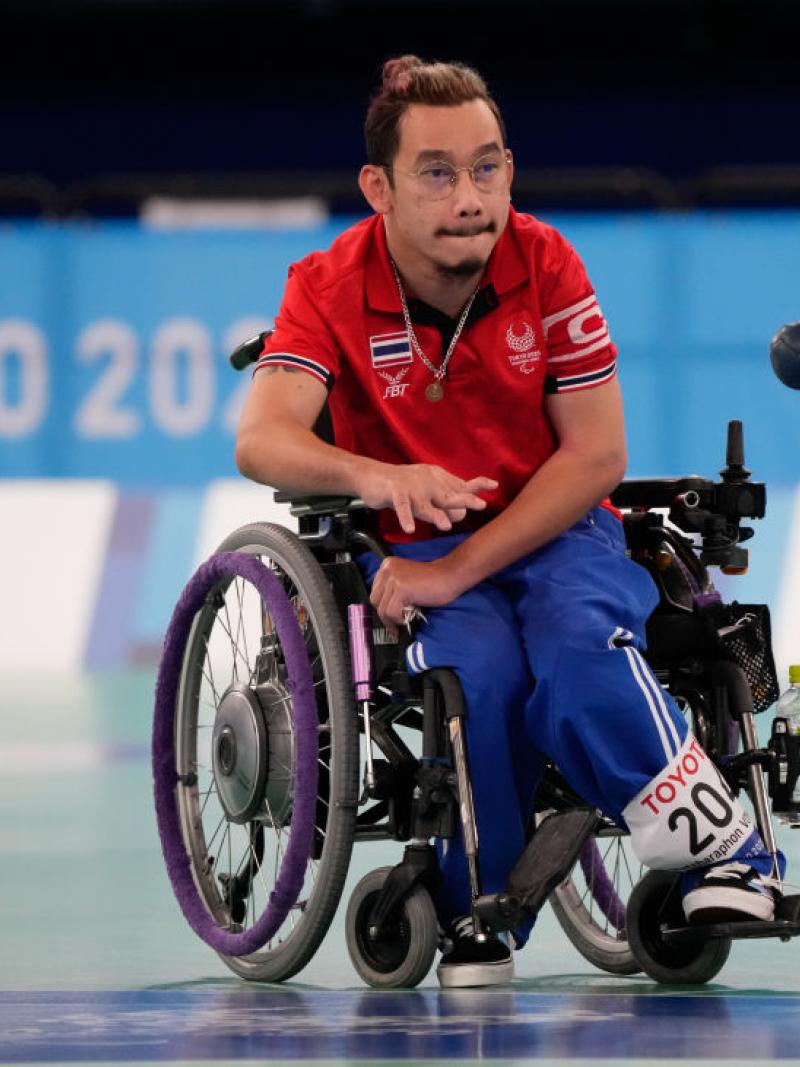Malaysia’s first medallist in boccia Chew Wei Lun has big hopes for the future
Chew Wei Lun took the silver medal in boccia’s BC1 category at Tokyo 2020 and became Malaysia’s first-ever Paralympic medallist in the sport. While he retired after the Games, he continues to look forward to more history being made for his country 20 Apr 2023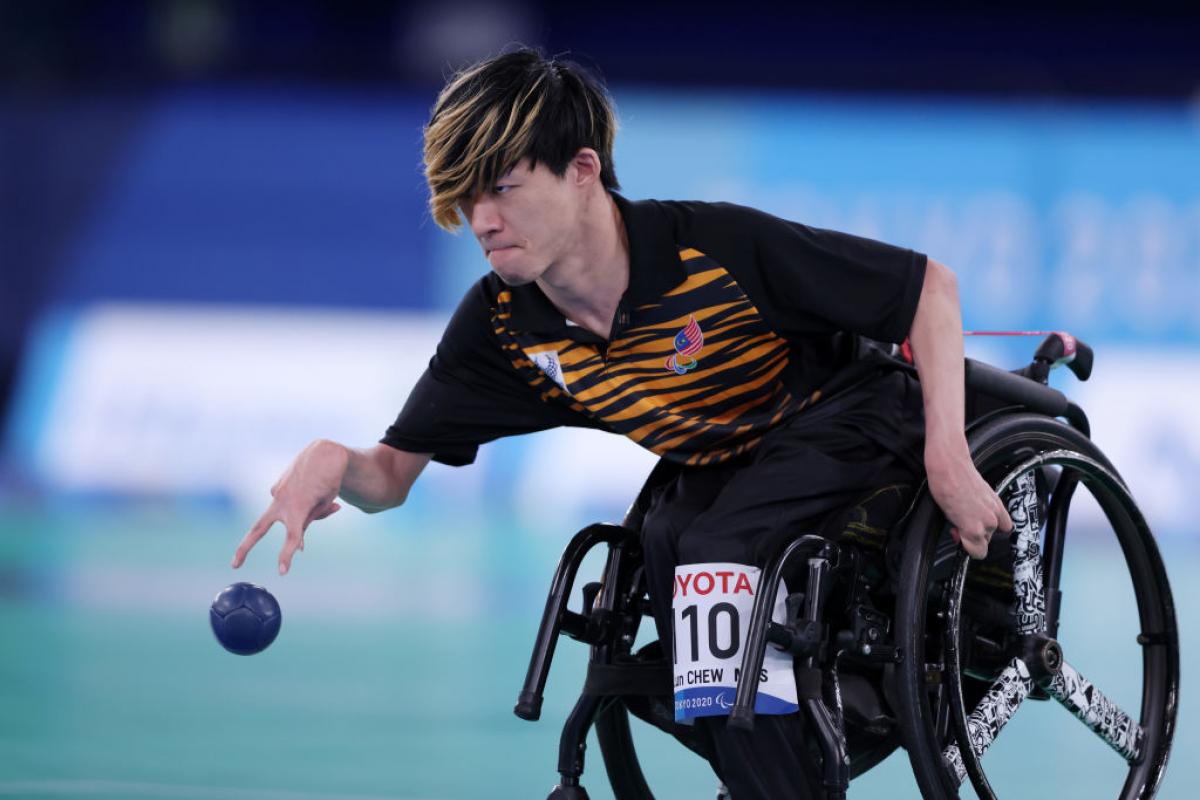
For Chew Wei Lun, boccia was a sport that he played for fun and he never thought he would one day compete at a Paralympic Games. He also did not imagine he would go on to make history as Malaysia’s first-ever Paralympic medallist in the sport by taking a silver medal at Tokyo 2020.
Making his Paralympic debut in the Japanese capital, Chew competed in the individual BC1 category with one goal: he wanted to introduce the sport to more people in Malaysia.
“In Malaysia not many people know what boccia is. Even if you tell other Malaysian people (about boccia), they will ask what boccia is because they have never heard of it,” Chew said. “I just went there (to Tokyo 2020) to do my job. I was the only one who qualified for Tokyo and my mission was to promote the sport.”
Playing for recognition
With his hair dyed a bright orange that matched Malaysia’s black and orange uniform, Chew did not suffer a single loss before advancing to the knockout stage. He beat Portugal’s Andre Ramos 9-5 in the semifinals to set up a gold medal match against Great Britain’s David Smith.
Boccia, which is a game of strategy and accuracy, is one of only two Paralympic sports that do not have an Olympic counterpart. Athletes are split into four classes depending on the degree of their impairment.
Chew competed in the BC1 category, which features athletes who have severe limitations in their movements, affecting their legs, arms and trunk.
The Malaysian athlete went into the final against Smith just like any other game. He was not nervous and he stuck to his routine of taking a short nap in the waiting room at Ariake Gymnastics Centre before the match.
“I never expected to go so far, so when I reached the final, I was like, ‘OK, I should play better or perform better if I can. If I get a gold medal then I’m lucky, but even if I lose, I can still get a medal and help promote the sport more’,” Chew recalled.
While he made some mistakes in the final and ultimately lost 4-2, Chew said he enjoyed playing on the biggest stage. And to top off the experience, he picked up one of Malaysia’s five medals at Tokyo 2020.
Growing the sport
Chew was introduced to boccia when he was around 10 years old while attending a school for students with impairments. His teacher asked him if he wanted to give the sport a try, and boccia became a way to enjoy his afternoons.
He soon noticed how difficult the sport is. In boccia, athletes deliver leather balls as close as they can to a white target ball, known as the jack. The player with the most balls near the jack is the winner.
“I played for fun, just throwing the ball,” Chew said. “I didn’t feel boccia was difficult at first, but once you start playing for a long time, then you feel that it’s quite difficult.
“It’s difficult because you need to control your movement, your power and everything. I think when I started to play seriously, then I realised that it’s not easy. The game play is easy but how you execute your game play is quite hard.”
Chew quit the sport briefly before returning to international competitions in 2019, and he continued to practise with his coach after the one-year postponement of the Tokyo 2020 Games.
The more he played, the more his hopes of growing the sport in Malaysia grew. Chew wanted to share the game with more people in his country, but he also wished there to be more athletes competing internationally.
“I wanted to let people know more about boccia because if they have friends or family that have a disability like me, they can have a try. Who knows, they may discover talent in boccia,” he said.
“It is also quite hard to find substitute players to represent Malaysia. That was also one of the reasons why I wanted to promote boccia,” Chew added, noting that he was motivated to promote the sport more after seeing other countries bringing substitute players to competitions.
New chapters in Malaysian history
More than a year since winning Malaysia’s first-ever Paralympic medal, Chew now hopes that other athletes will continue what he started in the country. After Tokyo 2020, he retired from the sport and currently works in IT support at a company in Kuala Lumpur.
“Even though I made history, let’s hope that there are other people who are better than me. I don’t care about achievements because I know that achievements won’t last long,” the Paralympic medallist said.
“I know there will be people who will replace me, but I don’t know when. I did what I can to promote the sport,” he added. “I hope that other people will replace me, earn better results and help promote the sport.”





